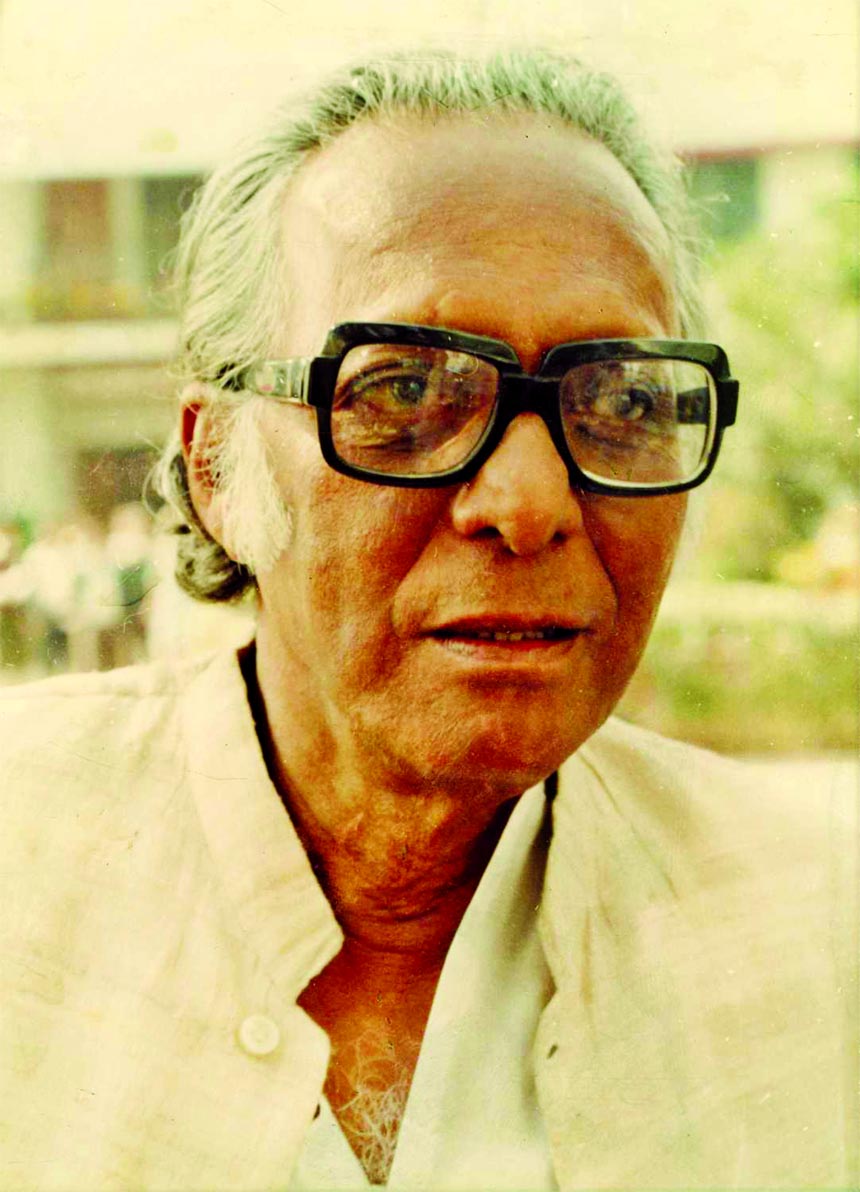
Entertainment Desk :
Legendary filmmaker Mrinal Sen, known for his contribution to Bengali parallel cinema, died on Sunday at his home at Bhawanipur in Kolkata. He was 95. He died at around 10:30am due to age-related ailments. His body will not be cremated until Sen’s son, Kunal Sen who lives in Chicago, arrives in Kolkata.
Mrinal Sen told his family that after his death people should not place flowers and wreaths on his body and it should not be kept in a public place for people to pay their respects.
Mrinal Sen, along with his contemporaries Satyajit Ray and Ritwik Ghatak, was considered a doyen of regional parallel cinema internationally.
Eminent actors such as Saumitra Chatterjee, Dhritiman Chatterjee and Aparna Sen, director Buddhadeb Dasgupta and Anjan Dutta, all of whom worked with the director, expressed their grief.
“I lost my guiding star today,” said Dhritiman Chatterjee. “An era came to an end,” said Saumitra Chatterjee.
Mrinal Sen was born on May 14, 1923, in Faridpur, Bangladesh. He moved to Kolkata to study physics, but was drawn to film-making after reading a book on film aesthetics. He made his debut as a filmmaker with a feature film, Raat Bhore in 1955, which starred Uttam Kumar.
He is known for his acclaimed films like Neel Akasher Neechey, Baishey Sravan (Bengali, 1960), Bhuvon Shome (Hindi, 1969), Mrigaya (Hindi, 1976), Oka Oori Katha (Tamil, 1977), Akaler Sandhane (Bengali, 1980), Kharij (Bengali, 1982) and Khandahar (Hindi, 1983).
Apart from winning National Awards, in 2005, he received the India’s highest film honour, the Dadasaheb Phalke Award. He was awarded Padma Bhushan, India’s third highest civilian award, in 1983.
Tributes for the icon have started pouring in on social media. President Ram Nath Kovind called his death a loss to world cinema.
West Bengal chief minister Mamata Banerjee tweeted about his death.
Legendary filmmaker Mrinal Sen, known for his contribution to Bengali parallel cinema, died on Sunday at his home at Bhawanipur in Kolkata. He was 95. He died at around 10:30am due to age-related ailments. His body will not be cremated until Sen’s son, Kunal Sen who lives in Chicago, arrives in Kolkata.
Mrinal Sen told his family that after his death people should not place flowers and wreaths on his body and it should not be kept in a public place for people to pay their respects.
Mrinal Sen, along with his contemporaries Satyajit Ray and Ritwik Ghatak, was considered a doyen of regional parallel cinema internationally.
Eminent actors such as Saumitra Chatterjee, Dhritiman Chatterjee and Aparna Sen, director Buddhadeb Dasgupta and Anjan Dutta, all of whom worked with the director, expressed their grief.
“I lost my guiding star today,” said Dhritiman Chatterjee. “An era came to an end,” said Saumitra Chatterjee.
Mrinal Sen was born on May 14, 1923, in Faridpur, Bangladesh. He moved to Kolkata to study physics, but was drawn to film-making after reading a book on film aesthetics. He made his debut as a filmmaker with a feature film, Raat Bhore in 1955, which starred Uttam Kumar.
He is known for his acclaimed films like Neel Akasher Neechey, Baishey Sravan (Bengali, 1960), Bhuvon Shome (Hindi, 1969), Mrigaya (Hindi, 1976), Oka Oori Katha (Tamil, 1977), Akaler Sandhane (Bengali, 1980), Kharij (Bengali, 1982) and Khandahar (Hindi, 1983).
Apart from winning National Awards, in 2005, he received the India’s highest film honour, the Dadasaheb Phalke Award. He was awarded Padma Bhushan, India’s third highest civilian award, in 1983.
Tributes for the icon have started pouring in on social media. President Ram Nath Kovind called his death a loss to world cinema.
West Bengal chief minister Mamata Banerjee tweeted about his death.

